NALMS Board of Directors
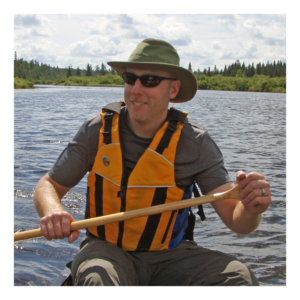 Jeremy Deeds (Region 1 – CT, ME, MA, NH, RI, VT)
Jeremy Deeds (Region 1 – CT, ME, MA, NH, RI, VT)
Jeremy Deeds has been an aquatic ecologist with the Maine Department of Environmental Protection since 2014. Prior to that, he worked with the Lakes and Ponds Section of the Vermont Department of Environmental Conservation. He has worked on many aspects of water quality and ecological condition, including lake condition assessments, biological community classification, data modeling, and littoral habitat evaluations. He holds an M.S. in Aquatic Ecology from Kent State University and a Ph.D. in Ecology and Environmental Science from the University of Maine.
Nicole White (Region 2 – NJ, NY, PR)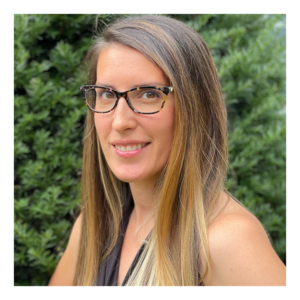
Nicole White is a conservation biologist with over 15 years of experience in water quality monitoring, riparian land protection, and invasive species management. She has worked for the New York State Department of Environmental Conservation managing aquatic invasive species for the past several years. Nicole owns an environmental consulting firm which has contracted with the Westchester County Soil & Water Conservation District, Hudson River National Estuarine Research Reserve, and the Mid-Atlantic Regional Seed Bank. Previously she served as Associate Director of the Catskill Center for Conservation & Development. She enjoys working with a variety of stakeholders in complex watersheds. She earned a B.S. in Conservation Biology from the SUNY College of Environmental Science & Forestry.
Ben Rhoades (Region 3 – DE, DC, MD, PA, VA, WV)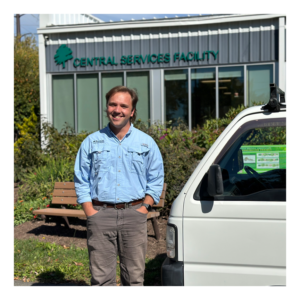
Ben Rhoades is the watershed manager for the Reston Association, a large civic organization in northern Virginia, overseeing the monitoring and maintenance of four lakes and their earthen dams. In Reston, Ben works to educate residents about the importance of watershed management in protecting their lakes through citizen science monitoring programs, drainage and erosion site visits, and education programs. An early-career professional, Ben received his B.A. in Environmental and Sustainability Studies from George Mason University in 2020 where he got his start with watershed outreach interning for the local Northern Virginia Soil and Water Conservation District. Ben joined NALMS in 2022 on the Enhanced Clean Lakes Program/Clean Water Act Section 314 Working Group and has been an advocate for protection and restoration of lakes since!
Perry Thomas (Region 4 – AL, FL, GA, KY, MS, NC, SC, TN)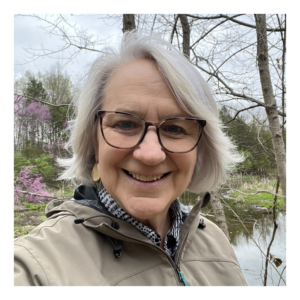
As Region 4 Director, Perry Thomas works to connect new and returning NALMS members and enhance NALMS’ professional development activities to meet unique needs and interests of lake, pond, and reservoir managers across the Southeast. Perry returns to the NALMS Board after a four-year hiatus. Previously, she served as Region 1 Director, Burlington VT 2019 Symposium Host Committee Co-chair, and President. She continues to serve as a founding member of the JEDI Program, with a focus on creating and disseminating lake watershed education experiences that actively engage disadvantaged communities in connecting with waterways, assessing needs, and planning action steps. Since moving to Kentucky in 2019, she worked with the Watershed Management Branch of the Division of Water, advised the Kentucky Volunteer Lakes Monitoring Program, trained Kentucky Watershed Watch samplers, and managed outreach programs for a county-based Soil & Water Conservation District. Currently she serves as Program Director with the Kentucky Association for Environmental Education and is a member of the inaugural class of the Soil and Water Conservation Society’s Emerging Leaders Program. Before transferring to Kentucky, Perry managed the Lakes and Ponds Program with the Vermont Watershed Management Division (2015 – 2019), chaired the Memphremagog Watershed Association’s Education Committee (2011 – 2015), and served as president of the Federation of Vermont Lakes and Ponds (2008 – 2012). As a faculty member with Sterling College (1998 – 2010) and the Community College of Vermont (2011 – 2015), she advised senior research projects and taught courses in Environmental Science, Elements of Microbiology, and Freshwater Ecology. Perry holds a B.A. in Biology from Dartmouth College, and an M.A.T. and Ph.D. in Biology from Northern Arizona University.
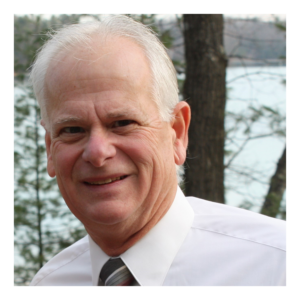 Ralph Bednarz (Region 5 – IL, IN, MI, MN, OH, WI)
Ralph Bednarz (Region 5 – IL, IN, MI, MN, OH, WI)
Ralph Bednarz is a retired Limnologist after a 35 year career in environmental protection and water resources management with the Michigan Department of Environmental Quality. Ralph managed Michigan’s inland lakes water quality monitoring and assessment programs. He was responsible for the implementation of the 2007 and 2012 National Lakes Assessment (NLA) in Michigan and he served as a national trainer for the 2012 NLA. Ralph coordinated the development and implementation of the Michigan Clean Water Corps (MiCorps) volunteer water monitoring network, including the Cooperative Lakes Monitoring Program (CLMP).
Ralph currently is working to advance protective lakes management programs in Michigan by serving on the Boards and committees of Michigan-NALMS; Michigan Waterfront Alliance; Michigan Inland Lakes Partnership; and Michigan Natural Shoreline Partnership, including the Certified Natural Shoreline Professions program. Ralph is also working to protect high quality lakes and healthy watersheds in northwest Michigan, one lake one shoreline at a time, by assisting and educating local units of government and lake associations on protective lakes management strategies. Ralph facilitated the formation of the Rennie Lake Association and he serves as its current president. Ralph has a M.S. in Limnology from Michigan State University.
Lee Bryant (Region 6 – AR, LA, NM, OK, TX, Mexico and beyond)
Dr. Lee Bryant is an Associate Professor in the Department of Civil and Architectural Engineering and Co-Director of the Centre for Climate Adaptation & Environment Research at the University of Bath (United Kingdom). She obtained a PhD in Civil and Environmental Engineering from Virginia Tech (2010) and completed post-docs at Duke University and ETH Zurich/Eawag (Switzerland) focusing on reservoir oxygenation. Dr Bryant’s current research explores sustainable approaches to improve water quality and ecosystem health in 1) drinking-water supply reservoirs in the US and UK and 2) urban agriculture sites in Sierra Leone, including public-health aspects of civil engineering.
 Tony Thorpe (Region 7 – IA, KS, MO, NE)
Tony Thorpe (Region 7 – IA, KS, MO, NE)
Tony Thorpe has been the coordinator/program manager of the Lakes of Missouri Volunteer Program (LMVP) since 2001. The LMVP is a community science endeavor housed in the Aquatic Ecology laboratory at the University of Missouri that has collected over 19,000 water samples across the state of Missouri. Tony has been on the Board of Directors for the Lake of the Ozarks Watershed Alliance since its creation in 2006 and was active in the development of Missouri’s lake nutrient criteria. Tony earned his MS at the University of Missouri by examining the relationship between heterotrophic bacteria and measures of lake trophic state.
Caleb Owen (Region 8 – CO, MT, ND, SD, UT, WY)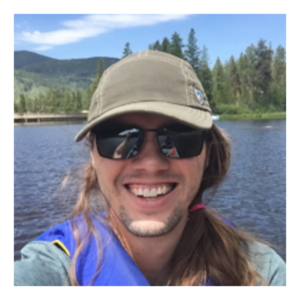
Caleb Owen is the Water Quality Administrator for the City of Thornton, Colorado where he leads the source water monitoring, management, and protection of more than 40,000 acft of water across 16 lakes and three watersheds. He also leads Thornton’s regulatory affairs and compliance program. He has worked for Thornton since 2015, initially performing water sampling and lab analysis. Caleb has served on the board of directors for the Colorado Lake and Reservoir Management Association since 2020, currently serving as President. He holds a B.S. in Chemistry and an Area of Special Interest in Environmental Science and Engineering from Colorado School of Mines.
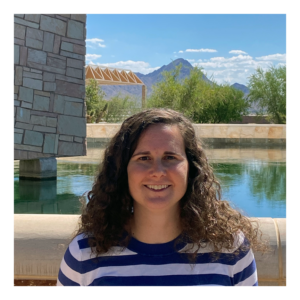 Deena Hannoun (Region 9 – AZ, CA, HI, NV)
Deena Hannoun (Region 9 – AZ, CA, HI, NV)
Deena Hannoun is a Past President of the California Lake Management Society (CALMS). She has worked at the Southern Nevada Water Authority since 2016, where her primary focus is managing the three-dimensional hydrodynamic and water quality model for Lake Mead. Deena also performs statistical analysis and constructs statistical models for water quality data in the Lower Colorado River Basin. Deena earned her PhD in Applied Mathematics from North Carolina State University, focusing on numerical simulation of brine intrusion in the subsurface.
Mark Rosenkranz (Region 10 – AK, ID, OR, WA)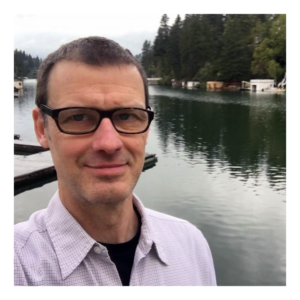
Mark Rosenkranz has been the NALMS Region 10 representative since 2018 and in that time has served as temporary Chair of the Communications Committee; served on the Conference Committee and Development Committee; and has been Chair of the JEDI Program since its inception as a committee in 2018. During his time on the Board, he has helped edit the Operations Manual and worked with the JEDI Program to ensure DEI is included in all aspects of NALMS.
Mark has been the staff Limnologist with Lake Oswego Corporation since 2002 managing water quality on an urban lake in the Portland Oregon metropolitan area. He received a master’s in environmental management from the Center for Lakes and Reservoirs at Portland State University and is a Certified Lake Manager with NALMS.
Liz Favot (Region 11 – Canada – NB, NL, NS, ON, PE, QC)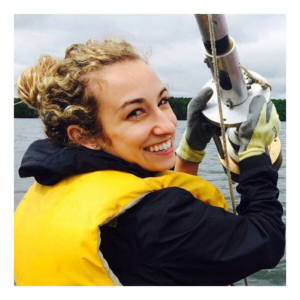
Liz Favot is an aquatic scientist in Sudbury, Ontario, who has worked for the provincial and federal government in various roles over the last three years, ranging from freshwater monitoring programs, to research, to fisheries policy, to industrial compliance assessment. Liz received her PhD from Queen’s University in 2021, where her research utilized paleolimnology (environmental indicators stored in lake sediments) to reconstruct multi-century trends in nutrients, oxygen, and primary production, and investigate the environmental triggers for recent cyanobacterial blooms in oligotrophic and minimally disturbed lakes.
Jay Toews (Region 12 – Canada – AB, BC, MB, NU, NT, SK, YT)
Jay Toews, a registered Professional Biologist and Chartered/Professional Chemist, is owner of Toews Environmental Consulting & Aquatic Sciences, independently providing specialist advisor and project management services since 2015. Previously the Western/Northwestern Canada Water and Natural Resources Lead for a major engineering firm, Jay has developed collaborative relationships with the limnological community and amassed diverse experience across Canada and internationally over his 26-year career. Jay prioritizes public engagement, which tends to keep questions (“public education opportunities”) coming long after projects are theoretically completed. Jay volunteers as scientific advisor to A Rocha Manitoba and the Riding Mountain UNESCO Biosphere Reserve.
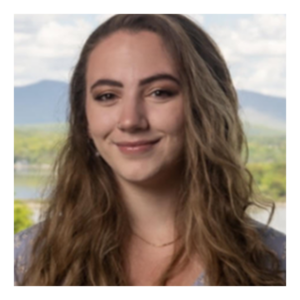 Mikala L’Hote (Student Director)
Mikala L’Hote (Student Director)
Contact NALMS’ Student Director
Mikala L’Hote is a current master’s student at Paul Smith’s College studying Natural Resource Conservation. In conjunction, she also serves as a graduate research assistant with the Adirondack Watershed Institute, where she has had the opportunity to work on a variety of lake assessment and management projects touching upon complex water related questions and concerns throughout the Adirondack Park. Her graduate research specifically addresses landscape-scale drivers of road salt pollution on lakes within the Lake Champlain Basin, aiming to provide both the public and key stakeholders with the information needed to understand and address road salt impacts in this region. Mikala is passionate about merging both the scientific and social realms with her research, recognizing the importance each serves in understanding environmental problems and effectively implementing management actions.
Brian Ginn (At-Large Director)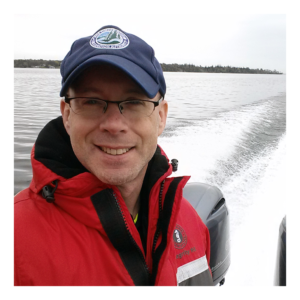
Contact NALMS’ At-Large Director
Brian Ginn is the limnologist with the Lake Simcoe Region Conservation Authority, heads their lake monitoring program, and is one of three Canadian NALMS Certified Lake Managers. Focusing on nearshore zone management, Brian’s work addresses the questions and concerns of local residents; supports the implementation of the Lake Simcoe Protection Plan; and investigates macrophytes, benthos, water quality, and the impacts of nutrients, climate change, and invasive species. Brian has a BSc and MSc from the University of New Brunswick and a PhD from Queen’s University. Originally from the Maritime Provinces, Brian is a lifelong resident of Region 11, has lived in four of the provinces, and is very familiar with the diversity of lakes, and lake issues, in this region.
Are you interested in serving on the NALMS Board of Directors?
